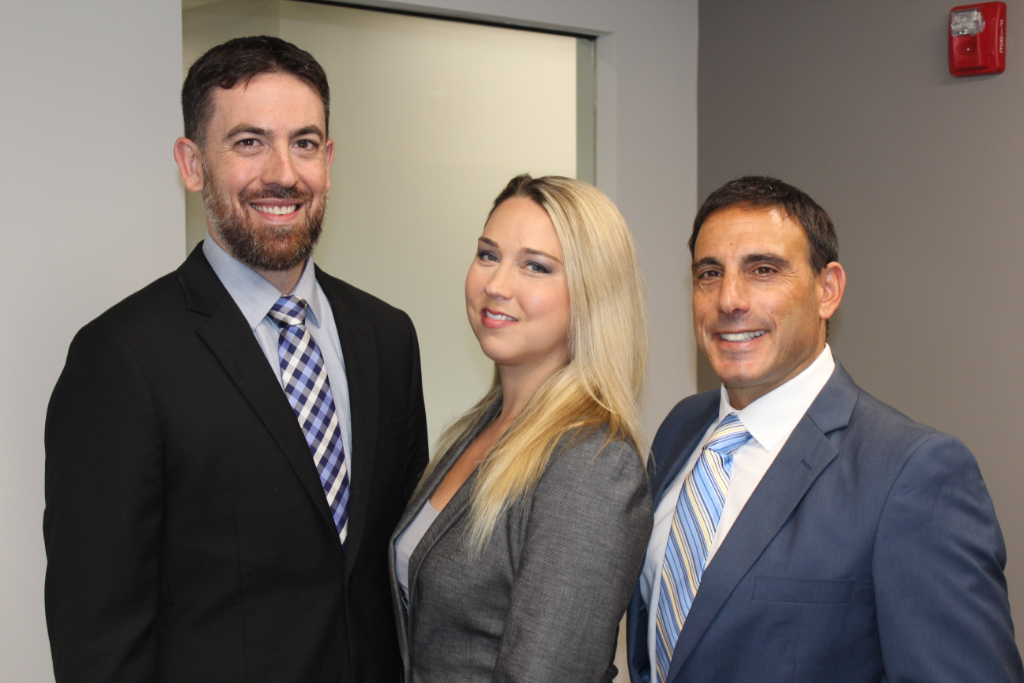How Does The Family And Medical Leave Act Impact Your Family?
Under the Family and Medical Leave Act (FMLA), 29 U.S.C. § 2601 et seq., employees have the right to take up to 12 weeks of unpaid leave for a serious illness, to care for a seriously ill family member or to care for a newly born or adopted child.
Employers must return an employee who takes leave to the same or an equivalent job. Employers cannot interfere with an employee’s right to leave, and they cannot discriminate or retaliate because an employee takes or seeks to take leave.

You Can Take Intermittent Leave
FMLA leave can be taken all at once or on an intermittent basis as needed by the employee or their family member. For example, an employee can use a couple of hours of FMLA leave twice a week in the morning to take their child or spouse to recurring physical therapy appointments after an accident or to follow-up a doctor’s appointment after a surgical procedure.
FMLA Cases Are Complex
Cases involving FMLA leave can be complex because they often overlap with the rights afforded to employees by the Americans with Disabilities Act (ADA) and the Rehabilitation Act. Some courts have even held that the ADA should be interpreted to provide additional leave beyond that specified in the FMLA as a form of reasonable accommodation.
Some states also provide benefits that go beyond those afforded by the federal FMLA. For example, in the District of Columbia, employees can take up to 16 weeks of leave.
Benefits For Military Families
The FMLA provides additional benefits for the families of service members. Spouses, children, parents, and next of kin of service members may be entitled to up to 26 workweeks of leave per year to care for a service member who is undergoing medical treatment for a serious injury or illness. The injury or illness must be one that was incurred in the line of duty or aggravated by service in the line of duty, and the condition must be severe enough that it may render the member unfit to perform the duties of their office, grade, rank or rating. The FMLA also covers the family of veterans for five years after their separation or retirement.
The FMLA also provides 12 weeks exigency leave for the immediate family of service members in the event that a service member has been notified of an impending call or an order to deploy to a foreign country. Family members may also take leave if a member of the National Guard or Reserves is called to active duty in support of a contingency operation. The service member’s active duty orders should identify whether they are serving in support of a contingency operation. To qualify, the need for leave must be directly related to the service member’s deployment or call to duty.
Covered Employers
The FMLA applies to employees who have worked at least 1250 hours for their employer in the last 12 months and employers with at least 50 employees in a 75-mile radius.
The FMLA has a generous statute of limitations. Claims must be filed within two years after the last action that the employee believes was a violation or three years if the violation was willful.
Note, however, that the procedures for government employees are different and may be governed by much shorter deadlines associated with grievance processes and merit systems appeals. These deadlines can be as short as 15 days.
When can the FMLA leave be taken?
Eligible employees can take FMLA leave during any twelve-month period due to “serious health conditions” affecting the employee or the employee’s family member. The Act defines a serious health condition as an illness, physical, or mental impairment requiring inpatient care at a medical care facility or continuing treatment by a healthcare provider. Under the FMLA, leave can be taken for the following:
- the birth of a child;
- the placement of a son or daughter in the care of the employee for adoption or foster care;
- to care for a spouse, son, daughter, or parent of the employee that has been diagnosed with a serious health condition; or
- because of a serious health condition that renders the employee unable to perform the functions of their position.
In addition to taking one continuous twelve-week leave, employees can also take intermittent leave or work a reduced schedule if they so choose. If the leave is foreseeable, employees are required to provide their employer with at least 30 days’ notice before their leave.
How do I prove that FMLA leave is necessary?
Most employers will require that a request for leave be supported by some certification issued by a healthcare provider. The FMLA authorizes employers to request these certifications, which they must promptly submit to their employer. Additionally, the Act outlines what criteria a certification must meet to be considered sufficient by an employer.
To be considered sufficient, the certification must contain the following:
- the date upon which the serious health condition commenced;
- the predicted duration of the condition;
- the appropriate medical facts regarding the condition to the knowledge of the health care provider;
- if the employee is taking leave to care for a family member, a statement indicating that the family member in question requires care from the employee is required;
- if the employee is taking leave due to a personal health condition, a statement indicating that the employee is unable to perform their job functions is required; and
- for intermittent or reduced schedule leave for planned medical treatment, the dates and expected duration of treatment are expected.
Employers are allowed to request a second opinion at their own expense, from a healthcare provider designated by the employer, so long as the employer does not employ the provider on a regular basis. If the original and second opinions conflict, then the employer can request a third opinion at their own expense, which would decide the finality of the certification. Additionally, an employer may require recertification’s on a reasonable basis throughout an employee’s leave.
What rights do I have as an employee taking FMLA leave?
Under the FMLA, employees are entitled to the position’s restoration upon their return. This requirement can be satisfied by either returning the employee to the position held at the commencement of their leave or restoring them to a similar position complete with equivalent pay, benefits, and other conditions of employment. However, the Act does not entitle employees to any accrual of seniority or employment benefits during their leave, nor any position or benefits that they could have acquired if they did not take FMLA leave. Employers do have the right to deny an employee restoration only if they can prove that the denial is necessary to prevent substantial economic injury to the employer.
Suppose an employee requests intermittent or reduced schedule leave. In that case, an employer can place them in an alternative position so long as the employee has equivalent pay and benefits, and the employer can prove that the position better accommodates the employee’s recurring periods of leave. Additionally, employers can require employees to use any available paid, personal, or family leave during the duration of their FMLA leave.
During their leave, employees are also entitled to maintain healthcare coverage provided by their employer. This entitlement applies to the employee and any family members covered by the employees’ healthcare plan. However, if the employee fails to return from leave, the employer can recover the premium they paid to maintain coverage for the employee during their leave.
Family and Medical Leave Act Retaliation
The Family and Medical Leave Act of 1993 was created to guarantee an employee’s right to take leave to care for themselves or a family member. Unfortunately, not all employers understand their employee’s needs and may choose to deny employees the opportunity to exercise their FMLA rights. Thankfully the Act clearly outlines what constitutes a violation of an employee’s rights and what actions can remedy such violations.
Under the Act, it is unlawful for an employer to interfere with, restrain from, or deny an eligible employee the ability to exercise any FMLA right, and it is unlawful for an employer to discriminate or retaliate against an employee for:
- filing a charge or instituting any proceeding under or related to the FMLA;
- giving information about any inquiry or proceeding under the FMLA; or
- testifying or planning to testify in any inquiry or proceeding under the FMLA.
Discriminatory or retaliatory practices by employers include, but are not limited to: harassment, termination, or the withholding of payment, benefits, or other compensation.
Enforcement of FMLA Violations
The Act provides substantial protection for FMLA discrimination and retaliation victims. The FMLA outlines penalties and liabilities for employers who commit FMLA violations and the rights of employees who decide to bring an action based on FMLA misconduct.
An employer that commits an FMLA violation shall be liable to any eligible employee for damages equal to the employee’s wages, salary, benefits, or other compensation lost due to said violation. Additionally, in cases in which wages or compensation have not been denied or lost, an employee can recover any other monetary damages sustained due to the violation, i.e., the cost of providing family care up to 12 weeks of salary.
Affected employees can bring actions to recover damages in any federal or state court. Employees can bring said actions on their own behalf and/or in the interest of other similarly afflicted employees. In addition to any judgment awarded to the employee, the court may also award the payment of reasonable attorney, expert, and witness fees.
While protections for FMLA retaliation victims are extensive, some limitations for filing do exist. Employees can only bring actions under the Act within two years of the last alleged violation. However, employees can bring cases concerning a willful violation of the FMLA within three years of the last alleged violation. Actions concerning willful violations of the FMLA require an employee to prove that their employer knowingly acted in violation of the Act.
How can we help?
Hoyer Law Group is experienced and equipped to help you understand your eligibility and rights under the FMLA. If you have any questions regarding the FMLA or other employment matters, don’t wait – call us at 844-277-1217 for experienced counsel or contact us online.




